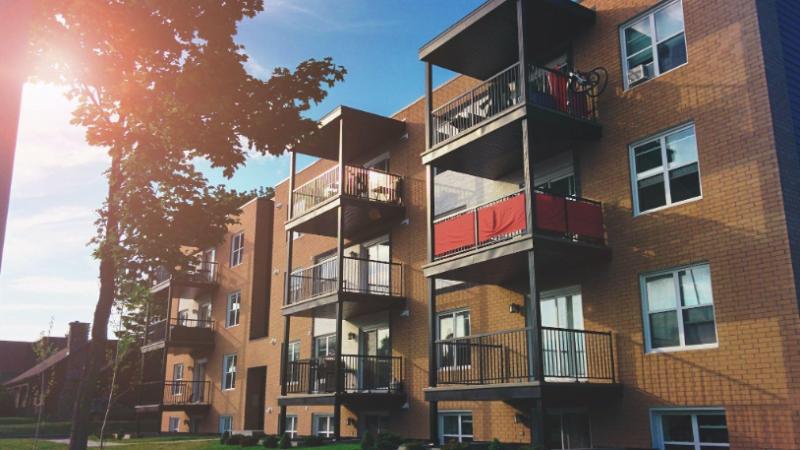Passive Income Strategies for Apartment Investors

Photo by Sigmund from Unsplash
Imagine sipping a cocktail on a tropical beach or hiking through a remote mountain range. All the while, your bank account keeps growing, thanks to a silent financial engine humming away in the background. This isn't a fantasy; it's the power of passive income through apartment investing.
Intrigued? You should be. The notion of making money with minimal ongoing effort has long captivated ambitious minds. And in the multifaceted world of real estate, apartment investments offer not just one, but myriad avenues to financial freedom.
Traditional Passive Income Routes
The concept of passive income has its roots in tried-and-true strategies that have stood the test of time. These real estate investments involve a more hands-on approach initially but can evolve into dependable sources of regular income.
Buy-and-Hold Strategy
The Buy-and-Hold Strategy is as straightforward as its name suggests. This involves purchasing an apartment or apartment complex and holding onto it for an extended period.
Advantages:
- Tax Benefits: Long-term investments often come with various tax advantages, including lower capital gains taxes.
- Equity Building: As you pay off your mortgage, you build equity, allowing you more leverage for future investments.
Drawbacks:
- Market Volatility: The value of your property could decline due to economic downturns or local factors.
- Management Needs: Long-term ownership requires effective property management, which can become a chore if you're aiming for a hands-off investment.
Renting Out Individual Units
Another strategy to consider is Renting Out Individual Units within an apartment complex. This turns you into a landlord but also provides a regular income stream.
Advantages:
- Steady Income: Rent payments can provide a consistent and reliable source of income.
- Flexibility: You have control over tenant selection and rent pricing, allowing you to adapt to market conditions.
Drawbacks:
- Tenant Issues: Being a landlord comes with its share of headaches, including potential difficulties with tenants, such as late payments or property damage.
- Occupancy Risks: Your income is tied to the occupancy rate of your property. Vacant units mean lost revenue.
Triple Net Leases
The third conventional avenue when investing in properties for passive income is Triple Net Leases. In this arrangement, tenants pay not only the rent but also property expenses like maintenance, insurance, and taxes.
Advantages:
- Predictable Income: Triple net leases often involve long-term contracts, providing a more stable income.
- Reduced Expenses: Since tenants cover property expenses, it reduces the financial burden on the owner.
Drawbacks:
- Less Control: Tenant responsibilities for property upkeep could lead to deferred maintenance or lower quality repairs, potentially affecting property value.
- Tenant Dependency: A bad tenant can significantly impact your income and property value.
REITs: A Modern Take
Some property investments require active management, such as those who choose to become Airbnb hosts. But for something less demanding, Real Estate Investment Trusts or REITs can be promising. They are companies that own or finance income-producing real estate across various sectors. By investing in a REIT, you're essentially buying shares of a company that owns real estate properties.
Advantages:
- Liquidity: Unlike physical real estate, REITs can be bought and sold easily on stock exchanges.
- Dividend Income: REITs are required to distribute at least 90% of their taxable income to shareholders as dividends.
Drawbacks:
- Market Fluctuations: Being publicly traded, REITs are subject to market volatility, which can be stressful for long-term investors.
- Management Fees: These trusts are managed by professionals, and their fees can eat into your profits.
Financial Engineering — The Game Changer
Apartment investing isn't solely about acquiring properties or leveraging modern financial tools. There's a more cerebral layer that involves fine-tuning your financial structures to maximize returns.
Refinancing
This process involves replacing your current mortgage with a new one, usually with better terms or to tap into the property's equity. This creates opportunities for further investment.
Advantages:
- Lower Interest Rates: Refinancing can help you take advantage of lower interest rates, thereby reducing monthly payments.
- Unlocking Equity: This strategy can free up capital that you can reinvest in other properties or upgrades.
Drawbacks:
- Transaction Costs: There are fees and charges involved in refinancing, which could negate some of the financial benefits.
- Extended Loan Terms: Refinancing might prolong your mortgage, delaying complete ownership of the property.
1031 Exchange
The 1031 Exchange, named after Section 1031 of the U.S. Internal Revenue Code, allows you to defer capital gains taxes when you sell a property and reinvest the proceeds in a "like-kind" property.
Advantages:
- Tax Deferral: Avoid immediate capital gains tax, allowing for larger capital for the next investment.
- Portfolio Diversification: You can exchange properties across states or property types, diversifying your investment portfolio.
Drawbacks:
- Complex Rules: Failure to adhere to the stringent rules of a 1031 exchange could result in hefty penalties.
- Timing Constraints: You have limited time to identify and acquire the replacement property, adding a layer of pressure and risk.
The Ethical Compass — Social Impact Investing
Beyond the financial intricacies and market dynamics lies a burgeoning field known as Social Impact Investing. This approach brings a morally conscious angle to apartment investing, focusing not just on financial returns but also on creating positive societal change.
Affordable Housing Investments
Such investments involve allocating capital towards apartment complexes that provide lower rent options for marginalized or low-income communities.
Advantages:
- Social Good: You are contributing to society by offering affordable living spaces.
- Government Incentives: Some jurisdictions offer tax benefits or grants for affordable housing initiatives.
Drawbacks:
- Lower Returns: Typically, affordable housing doesn't provide as high a return on investment as other types of properties.
- Regulatory Challenges: There are often more bureaucratic hurdles to clear when offering affordable housing.
Green Property Investments
These properties focus on meeting certain environmental standards, whether through energy-efficient design or sustainable materials. Integrating solar panels into a property's infrastructure is a proven strategy for enhancing its market appeal and long-term value. Not only do solar panels reduce a home's carbon footprint, but they also deliver tangible financial benefits, such as lower utility costs, making them an attractive feature for environmentally conscious buyers and investors alike.
Advantages:
- Eco-Friendly: You're reducing the environmental footprint of your investment portfolio.
- Market Differentiator: Green properties often attract a specific, conscious clientele willing to pay a premium.
Drawbacks:
- High Upfront Costs: Green properties often require significant investment in sustainable technology or materials.
- Maintenance: Some green technologies may require specialized maintenance, potentially raising operational costs.
Community Engagement Projects
It could include initiatives like building communal spaces within apartment complexes or providing free educational programs for residents.
Advantages:
- Community Building: Enhances the living experience, increasing tenant satisfaction and retention.
- Potential for Partnership: Local organizations may be willing to collaborate, sharing the financial or operational burden.
Drawbacks:
- Additional Time and Resources: Community engagement often involves a considerable commitment of time and resources.
- ROI Uncertainty: The financial return on these projects may not be immediately tangible or quantifiable.
Wrapping Up

Photo by Luis Quintero from Pexels
Investing in an apartment is more than a mere financial endeavor. It's an intellectual expedition, a moral contemplation, and a dynamic game of strategy and risk. The multitude of options before you is not merely a list of possible investments, but a repertoire of life choices, each with its own unique set of complexities and impacts.
So, as you chart your path in this compelling landscape, consider not just the financial gains, but the intellectual rigor and ethical dimensions that come with it. In doing so, you're not just building wealth; you're crafting a legacy.
More to Read:
Previous Posts:











